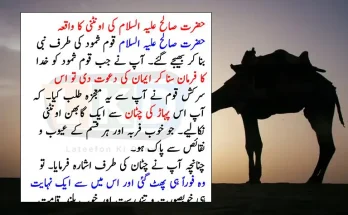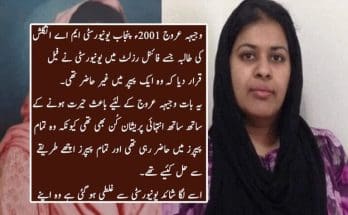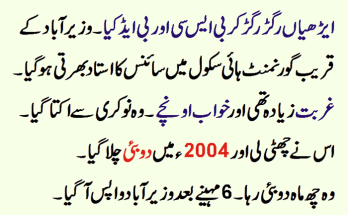Once, a buddy of Prophet Muhammad (harmony arrive), Abu Dahdah, lived as my neighbor. In my nursery, a few parts of his date palm tree inclined towards my home. At the point when the organic products matured and fell, my youngsters would rapidly get them. Being an individual of restricted implies, Abu Dahdah would run towards my home, delicately recover the dates from my youngsters’ mouths, and leave.
Peruse IN URDU Beneath
At some point, I moved toward the Prophet (harmony arrive) and whined about Abu Dahdah’s way of behaving, communicating worry about my kids. The Prophet recognized the circumstance and proclaimed that Abu Dahdah was a charlatan. Inquisitive, I inquired as to whether he participated in any business. The Prophet (harmony arrive) answered, “Give me that palm tree, and consequently, I will furnish you with a date palm tree in Jannah (Heaven).”
Flabbergasted by the recommendation, Abu Dahdah delayed, addressing whether he was going with a savvy choice. To persuade him, the Prophet referenced that the tree in Jannah would bring various gifts. At last yielding, Abu Dahdah gave over the tree and claimed the virtual tree in Heaven.
An individual buddy, Abu Dahdah, who was available, was charmed by the exchange. He inquired as to whether he would get a comparative proposal for his nursery. Prophet Muhammad certified, promising him a date palm tree in Jannah in return for his natural nursery.


Nonetheless, Abu Dahdah appeared to have doubts. “How much would you sell the tree for?” he asked. The Prophet answered, “You’re kidding! Would I participate in a misleading exchange with Allah’s Prophet?” Abu Dahdah squeezed further, “Let me consider it.” In the long run, he concurred, forfeiting his whole nursery for the guaranteed tree in Heaven.
Afterward, Abu Dahdah moved toward the Prophet, expressing that he had without a doubt taken part in a beneficial exchange. The Prophet asked him how he had benefitted, to which Abu Dahdah answered, “I have exchanged my nursery for a timeless nursery Heaven.”
Abu Dahdah’s demonstration of forfeiting his natural belongings for a superb commitment epitomizes the pith of genuine confidence and magnanimity. This episode shows us the significant worth of liberality, trust, and the need of timeless prizes over impermanent increases.
At the point when Abu Dahdah died, the Prophet saw a momentous sight during his memorial service. He declared, “I see 100 nurseries in Heaven over Abu Dahdah’s grave, and the palm tree of Abu Dahdah in Jannah is shaking the hands of Allah, celebrating Him.”
The account of Abu Dahdah’s nursery instructs us that genuine abundance lies in our deeds, and the prizes of magnanimous demonstrations stretch out past this common life. It underscores the significance of confidence in the heavenly commitments and the unlimited endowments that go with demonstrations of liberality.
End
Abu Dahdah’s heritage keeps on rousing adherents to focus on timeless fortunes over brief belongings. His resolute confidence and readiness to forfeit for Allah’s commitment make a permanent imprint on the hearts of the individuals who hear his story. The illustration from Abu Dahdah’s nursery resounds through ages, helping us to remember the significant worth of liberality, trust in divine commitments, and a definitive prize that anticipates the people who focus on the great beyond.
Key Examples from Abu Dahdah’s Nursery:
Genuine Abundance Lies in Deeds: Abu Dahdah’s story highlights the meaning of deeds over material belongings.
Trust in Divine Commitments: Abu Dahdah’s enduring confidence in the Prophet’s commitment mirrors the significance of confiding in Allah’s confirmations.
Timeless Prizes: Penances made for Allah bring about enduring prizes that rise above common increases.
Liberality Has no limits: Abu Dahdah’s sacrificial demonstration epitomizes the endless idea of genuine liberality.
Reference: This story is recorded by different researchers, including Ibn Hibban, Al-Tabarani, Al-Hakim, and Al-Bayhaqi.




